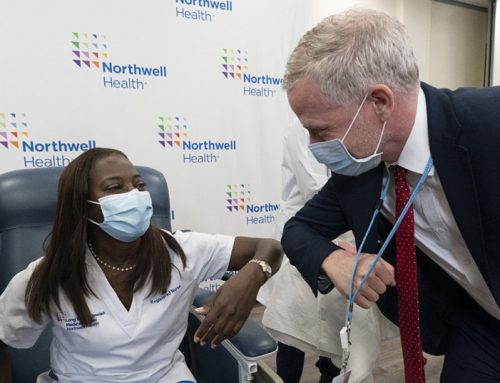What Sick Day?
Fear of falling behind at work leads to employees coming in when sick

In total, more than 1 in 3 (36%) business professionals said they go into the office when they feel sick, while an additional 39% said they ‘sometimes’ go to the office when sick, according to a new Office Pulse study of 1,227 white-collar workers.
Percent of business professionals that go into the office when they feel sick, based on job title: |
When considering gender, the study found male business professionals were more likely than female professionals to head into the office when sick (41% vs. 32%).
White-collar workers don’t take time to recuperate when they’re sick either. When asked what they’re most likely to do when they’re feeling ill during the work week, 40% said they “suck it up and go into the office.” An additional 40% will spare their coworkers from their germs, but will still work from home. Just 20% said they’ll actually call out sick and “take it easy.”
White-collar professionals are tough – or, at least stubborn – when it comes to their health and profession. 50% said when they’re sick, their symptoms need to be severe (i.e. fever; chills) for them to call out of work. Very few – only 13% – white-collar workers said they’d call out sick with mild cold & flu symptoms (i.e. groggy, headache, achy body).
How severe do your symptoms have to be for you to call out sick from work?
Male Professionals |
Female Professionals |
Why do people work when they’re sick? A separate survey from the University of California found that U.S. corporate managers equated working longer hours with being “more dedicated, more hardworking, and more responsible.”
Our Office Pulse study found the main reason people work while they’re sick is because they’re too afraid of falling behind on the job. 45% said they work while sick because they “need to get stuff done.”
More selfishly, the next biggest reason people work while sick is because they didn’t want to lose any of their vacation or personal time off if they can “work through” their illness. 11% said their boss expects them to work – even if they’re sick.
A Bloomberg report from earlier this year found that 3 million people, or 2% of the US population, bring their ailments to work each week.
About Office Pulse
Office Pulse by Captivate offers marketers timely analysis and insights from a proprietary panel of upscale professionals in the top markets. The Office Pulse panel of more than 8,000 influential consumers and business decision makers includes C-level executives, Millennials, middle management, small business owners, working women and working moms.
About Captivate
Known for its vast network of nearly 12,000 elevator displays located in 1,600 premier office buildings across North America, Captivate connects advertisers with 13 million unique monthly viewers through creative, research-driven and Nielsen-measured advertising and marketing programs. By engaging its viewers with timely news and actionable information that helps balance the personal and professional demands of the workday, Captivate provides advertisers with a highly desirable and difficult-to-reach audience of affluent and influential business professionals. Founded in 1997, Captivate is owned by Generation Partners. For more information, please visit www.captivate.com.







